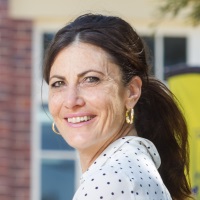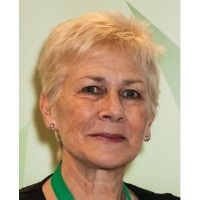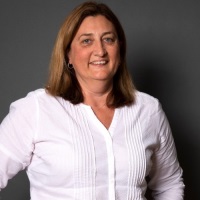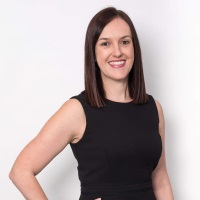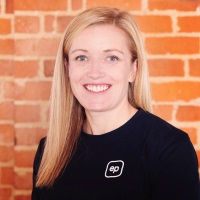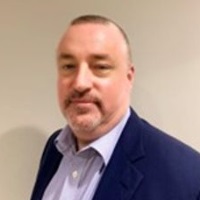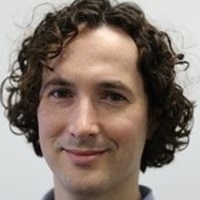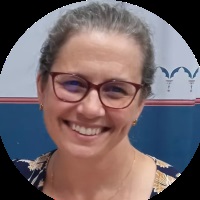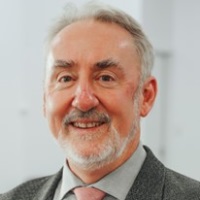Bruce Fuda | Head of Education (Curriculum)
Grok Academy
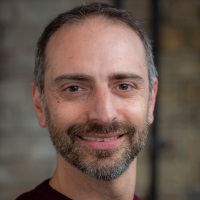
Bruce Fuda is Head of Education (Curriculum) at Grok Academy and the Project Lead on the Schools Cyber Security Challenges Project. Prior to joining Grok Academy, he has held jobs in Secondary Schools and the University sector, working as a teacher, Head of Department and Associate Principal, and lecturing in Masters programs.
Bruce has over 16 years’ experience working in education and teacher training, teaching all years levels from Year 6 through 12, and working with both pre- and in-service teachers. Bruce was a member of the advisory group for the writing of the Australian Curriculum: Technologies, and later joined the writing team for Digital Technologies during the consultation and review process.
He was the 2016 ACCE/ACS Australian ICT Educator of the Year, and was awarded an ISTE Making IT Happen award in 2017. He is the founding President of Information Technology Educators ACT.
Appearances:
Day 1 @ 11:00
Choosing a programming language in high school (secondary)
With so many programming languages in use today it can be hard to know which ones are best suited for the classroom. In this talk we will discuss some of the considerations you need to make to select an appropriate programming language for teaching students, and give you some of our recommendations.
Who Should Attend?
- Secondary teachers (7-12) and pre-service teachers looking to teach digital technologies and considering the using Grok Academy’s resources.
- Teachers and technology leaders looking for advice to design, refine and/or implement a Digital Technologies program at their school.
Day 1 @ 12:20
Designing a scope and sequence for Digital Technologies (primary/secondary)
The Digital Technologies subject is designed on the fundamental principle that core concepts are introduced and developed progressively as students move through the curriculum. In this talk, we’ll explain how this principle of design lends itself well to a multi-year scope and sequence, and how this can be used to inform decisions about your teaching programs in schools.
Who Should Attend?
- Primary and Secondary teachers (F-10) looking to design learning programs that span multiple year levels in their schools.
- School Leaders, Curriculum Coordinators and ICT Integrators seeking to understand the breadth and depth of the Digital Technologies subject.
Day 1 @ 12:40
School transformation: a framework for developing digital capability (primary/secondary)
The WA Department of Education has embarked on a project to help schools in WA increase their digital capability – for teaching, learning and administrative functions of their schools. In this talk, we’ll present the research behind the development of their Digital Capability Framework (DCF), and run through the ways the DCF tool helps schools evaluate their digital capability, and set strategic goals for developing it further.
Who Should Attend?
- School leaders seeking to understand their school’s existing digital capability, and looking to develop this further as part of their strategic agenda.
- Departmental administrators and leaders looking for tools to help their schools transform their practice to embrace digital tools to improve their effectiveness and productivity.
Day 1 @ 13:00
Workshop - School transformation: a framework for developing digital capability (primary/secondary)
Day 1 @ 14:00
Teaching object-oriented programming (secondary)
The Australian Curriculum sets out an expectation that students learn the fundamental principles of object-oriented programming (OOP) in Years 9 and 10. In this talk, we’ll lay out the OOP principles students should be learning, and provide strategies and examples of how to teach these principles in the classroom.
Who should attend?
- Secondary Teachers (9-12) and pre-service teachers looking to teach digital technologies and senior secondary programming subjects.
Day 1 @ 14:20
Workshop - Teaching object-oriented programming (secondary)
Day 1 @ 15:40
Assessing Digital Technologies effectively (primary/secondary)
Assessing a student’s understanding and skills in Digital Technologies should be done using a range of tools and strategies, but what works best? And how do you design a task that is achievable for all, but provides opportunities for your high achievers to extend themselves? In this talk we’ll address both of these questions, and present some examples of assessment instruments that meet these goals.
Who Should Attend?
- Primary and Secondary teachers (3-12) and pre-service teachers looking to teach digital technologies and design effective assessment instruments.
- Teachers and technology leaders seeking resources to support the implementation of the curriculum.
Day 1 @ 16:00
Workshop - Assessing Digital Technologies effectively (primary/secondary)
Day 2 @ 09:40
Panel: Cyber in the classroom - Understanding how ‘privacy and security’ fits into the new Digital Curriculum and how to teach students about privacy and security
Focusing on changes to ‘privacy and security’ in the Digital Technologies Curriculum, our panel of experts will discuss how this area fits into the curriculum and their methods and tools for of teaching students about these essential skills.
Day 2 @ 12:00
Assessing Digital Technologies effectively (primary/secondary)
Assessing a student’s understanding and skills in Digital Technologies should be done using a range of tools and strategies, but what works best? And how do you design a task that is achievable for all, but provides opportunities for your high achievers to extend themselves? In this talk we’ll address both of these questions, and present some examples of assessment instruments that meet these goals.
Who Should Attend?
- Primary and Secondary teachers (3-12) and pre-service teachers looking to teach digital technologies and design effective assessment instruments.
- Teachers and technology leaders seeking resources to support the implementation of the curriculum.
Day 2 @ 12:20
Workshop - Assessing Digital Technologies effectively (primary/secondary)
Day 2 @ 12:40
Choosing a programming language in high school (secondary)
With so many programming languages in use today it can be hard to know which ones are best suited for the classroom. In this talk we will discuss some of the considerations you need to make to select an appropriate programming language for teaching students, and give you some of our recommendations.
Who Should Attend?
- Secondary teachers (7-12) and pre-service teachers looking to teach digital technologies and considering the using Grok Academy’s resources.
- Teachers and technology leaders looking for advice to design, refine and/or implement a Digital Technologies program at their school.
Day 2 @ 13:20
Teaching object-oriented programming (secondary)
The Australian Curriculum sets out an expectation that students learn the fundamental principles of object-oriented programming (OOP) in Years 9 and 10. In this talk, we’ll lay out the OOP principles students should be learning, and provide strategies and examples of how to teach these principles in the classroom.
Who should attend?
- Secondary Teachers (9-12) and pre-service teachers looking to teach digital technologies and senior secondary programming subjects.
Day 2 @ 13:30
Home Schooling Forum
In conjunction with the Home Education Association (HEA) -
Welcoming Address by HEA President Karen Chegwidden
The last couple of years have brought education into sharp focus, and especially home education as parents have become necessarily more involved in their children’s education. Home education now is the fastest growing sector in education. Join the Home Education Forum to find the answers to all your home education questions.
Home Schooling: Will the Real Home Education Please Stand Up?
Dr Terry Harding - 45 min presentation, 15 min Q&A
Home schooling, AKA home education has experienced vibrant growth across Australia and the Western World over the last few years. Given the many variants of school-based, mandated learning-at-home and remote and distance learning, understanding what is true home education can be confusing.
This session defines and clarifies true home education and the many home-based learning variants. It looks at why parents have chosen home education pre and post-COVID conditions. The author's recent research provides school leaders with vital information about what matters to parents who are considering exiting from the school system and entering home education. Similarly, it clarifies what is most important to home educators.
You must be very patient and other myths about home education.
Karen Chegwidden
Although becoming a more mainstream choice, home education continues to be perceived through a lens of assumptions not based in reality. When telling people that you home educate, common responses include -"You must be very patient", "I could never do that", "but what about socialisation?" and "can they go to university?" Karen Chegwidden, President of the Home Education Association, will share the lived experience of home education and unpack some of the myths surrounding home education.
Grad video
Young people share their experiences of transitioning from home education to tertiary education.
Panel Discussion - Home Education
Have you been considering home educating but not sure where to start? Perhaps you have educational FOMO? Our Expert panel has over three decades of combined home education experience answer your questions and put your minds at ease. Join us as we discuss:
● Where to start when you begin home education
● how home educators can access the same sorts of resources as schools
● Educational opportunities that are almost impossible to replicate in a classroom environment
● The advantages of young people being able to explore their own interests
● Things we wish teachers knew about home education
This is an interactive panel, so bring all your home ed questions and join in the conversation.
Panellists
● Karen Chegwidden
● Tere Latimer
● Janelle Barnes
Panel Discussion - Teaching STEM at home
This panel brings together experts in the field of STEM education to discuss the challenges and rewards of teaching STEM at home. Join our panel for inspiration and resources on how you can successfully teach these specialist subjects without access to a school lab or a science degree yourself. Bring your questions to this interactive session and leave inspired and equipped for your home education journey.
Panellists
● Education Perfect - Kelly Hollis kelly.hollis@educationperfect.com
● Grok (awaiting confirmation)
● Brainary - Sam Kinsley sam@thebrainary.com
● Shape Robotics - Robert Widger rob@shaperobotics.com
Closing Address by HEA President Karen Chegwidden
Home Education is legal, achievable and it works. You can successfully home educate your children. The HEA is there to assist and support you every step of the way. Find out how to connect with the HEA and get support to take the next step.
Day 2 @ 13:40
Workshop - Teaching object-oriented programming (secondary)
Day 2 @ 14:40
Designing a scope and sequence for Digital Technologies (primary/secondary)
The Digital Technologies subject is designed on the fundamental principle that core concepts are introduced and developed progressively as students move through the curriculum. In this talk, we’ll explain how this principle of design lends itself well to a multi-year scope and sequence, and how this can be used to inform decisions about your teaching programs in schools.
Who Should Attend?
- Primary and Secondary teachers (F-10) looking to design learning programs that span multiple year levels in their schools.
- School Leaders, Curriculum Coordinators and ICT Integrators seeking to understand the breadth and depth of the Digital Technologies subject.
Day 2 @ 15:00
School transformation: a framework for developing digital capability (primary/secondary)
The WA Department of Education has embarked on a project to help schools in WA increase their digital capability – for teaching, learning and administrative functions of their schools. In this talk, we’ll present the research behind the development of their Digital Capability Framework (DCF), and run through the ways the DCF tool helps schools evaluate their digital capability, and set strategic goals for developing it further.
Who Should Attend?
- School leaders seeking to understand their school’s existing digital capability, and looking to develop this further as part of their strategic agenda.
- Departmental administrators and leaders looking for tools to help their schools transform their practice to embrace digital tools to improve their effectiveness and productivity.
Day 2 @ 15:20
Workshop - School transformation: a framework for developing digital capability (primary/secondary)
Contact us
Sponsorship Enquiries
arron.penman@terrapinn.com
pascal.ibrahim@terrapinn.com
Marketing Enquiries:
rita.nehme@terrapinn.com

